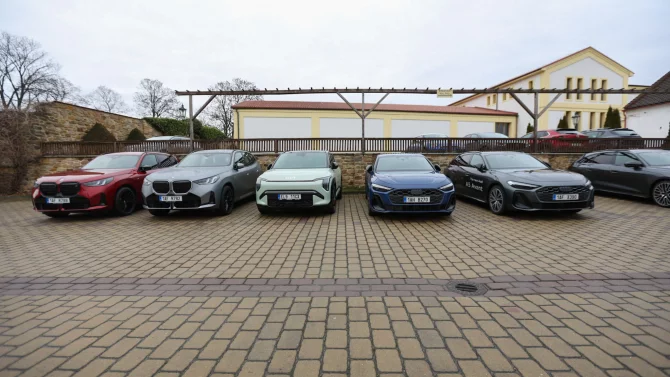Nov 24 (Reuters) - Reuters has surveyed 34 analysts for
their views on when the 10 countries which joined the European
Union in 2004, and also Bulgaria and Romania, are likely to
adopt the euro and when the EU will admit new members.
The poll, taken Nov 20-24, also asked what euro parity rates
analysts expect the currencies of Poland, Hungary, the Czech
Republic, Bulgaria and Romania to adopt in joining ERM-2, and
their views on EU entry for Serbia and Turkey.
Following is a summary of the results, which can also be
found on <EMUPOLL30>.
For analysis of the results, double-click on [EMU/MEMS1] and
[EMU/MEMS2].
1. In what year do you expect the following countries to
enter Europe's monetary union (i.e. formally adopt the euro)?
Median Mean Mode Maximum Minimum F'casts
Poland 2012 2012 2012 2015 2011 30
Hungary 2014 2013 2014 2015 2010 30
Czech Republic 2012 2012 2012 2015 2010 31
Slovakia 2009 2009 2009 2012 2009 32
Slovenia 2007 2007 2007 2007 2007 29
Lithuania 2009 2009 2009 2012 2008 28
Estonia 2009 2009 2009 2010 2008 30
Latvia 2009 2010 2009 2012 2008 30
Cyprus 2008 2008 2008 2012 2008 24
Malta 2008 2009 2008 2012 2008 24
Romania 2013 2014 2013 2020 2011 27
Bulgaria 2012 2013 2010 2020 2010 28
2a. In what year do you expect the following currencies to
enter the EU's Exchange Rate Mechanism?
Median Mean Mode Max. Min. F'casts
Polish zloty 2010 2010 2010 2011 2008 29
Hungarian forint 2010 2010 2010 2012 2008 29
Czech crown 2009 2009 2009 2011 2007 30
Romanian leu 2010 2010 2010 2013 2008 25
Bulgarian lev 2008 2009 2007 2013 2007 26
2b. What do you think would be a suitable central parity
rate and trading band against the euro in ERM-2 for the
following currencies?
Median Mean Mode Max. Min. F'casts
Polish zloty 3.7 3.7 3.5 4.0 3.0 20
Hungarian forint 260 260 260 300 240 21
Czech crown 27.2 27.0 28.0 29.0 23.0 22
Romanian leu 3.40 3.45 3.40 3.80 3.20 13
Bulgarian lev 1.96 1.98 1.96 2.25 1.90 14
3a. In what year do you expect Croatia to join the European
Union?
The median of 28 numerical forecasts was 2010. The range was
2009 to 2014.
3b. In what year do you expect Serbia to start negotiations
on joining the EU?
The median of 21 numerical forecasts was 2009. The range was
2008 to 2012.
3c. In what year would you expect Serbia to join the EU?
The median of 18 numerical forecasts was 2015. The range was
2012 to 2020.
4a. In what year do you expect Turkey to enter the European
Union?
Median of 23 numerical forecasts was 2018. The range was
2011 to 2025. Three respondents said never.
4b. What do you think is the percentage likelihood that the
EU will suspend negotiations with Turkey before they are
completed?
Median of 29 forecasts was 35 percent. The range was 0 to
100 percent.
4c. What do you think is the percentage likelihood that
Turkey decides it does not want to become a full EU member and
pulls out of the membership talks before they are complete?
Median of 26 forecasts was 30 percent. The range was 5
percent to 70 percent.
Contributors to the survey were: ABN AMRO, Allianz Dresdner,
Bayerische Landesbank, Bear Stearns, Calyon, Centre for European
Reform, Ceska Sporitelna, Citigroup, Cominvest Asset Man., CSOB,
Deutsche Bank, DIW, Dresdner Kleinwort, DZ Bank, Global Insight,
Handelsbanken, HSBC, HVB Bank, ING Financial Markets, Institute
of Public Affairs, KBC Asset Man., Kingston University, Komercni
Banka, Kopint-Datorg, Landesbank Berlin, Money Market Brokers,
Morgan Stanley, Natixis, Oppenheim Research, Pellervo Economic
Research Institute, RZB, Standard & Poor's, UBS, WestLB.
(Polling by Reuters Polling Unit)
((Editing by Gerrard Raven; Tel: +44 207 542 2687, Reuters
messaging: natalie.harrison.reuters.com@reuters.net))
Keywords: EUROPE POLL EMU FACTBOX




 Youtubeři zkoušeli, jestli nastartují Tatru 138 odstavenou osmnáct let. Výsledek nikoho nepřekvapí
Youtubeři zkoušeli, jestli nastartují Tatru 138 odstavenou osmnáct let. Výsledek nikoho nepřekvapí
 Test Hyundai Santa Fe 1,6 T-GDI Hybrid: má recept na úspěch i bez naftového motoru?
Test Hyundai Santa Fe 1,6 T-GDI Hybrid: má recept na úspěch i bez naftového motoru?
 Povinnosti účastníků provozu účastníky provozu mnohdy zaskočí. Dnešní kvíz prověří, jestli své povinnosti znáte
Povinnosti účastníků provozu účastníky provozu mnohdy zaskočí. Dnešní kvíz prověří, jestli své povinnosti znáte
 „Přišel pěšky, odjel vlastním vozem“: slogan autobazarů měl charakterizovat prodeje ojetin v Československu
„Přišel pěšky, odjel vlastním vozem“: slogan autobazarů měl charakterizovat prodeje ojetin v Československu
 Je Kodiaq favorit? V ČR se hledá nejlepší auto pro rok 2025. Ve hře je i brutální elektromobil nebo klasické SUV
Je Kodiaq favorit? V ČR se hledá nejlepší auto pro rok 2025. Ve hře je i brutální elektromobil nebo klasické SUV
